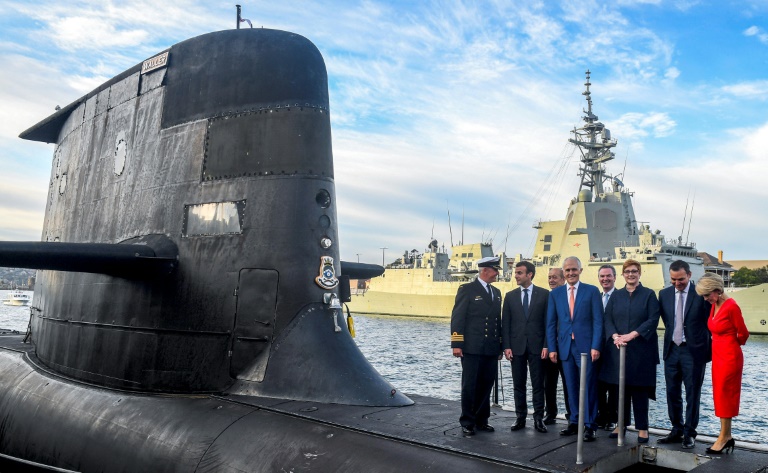European allies rallied cautiously around France on Tuesday after the US and Australian decision to strip Paris of a submarine supply contract, but some warned the dispute should not torpedo trade talks.
German Europe Minister Michael Roth said France’s diplomatic crisis with the US was a “wake-up call for all of us” on the importance of uniting an often divided EU on foreign and security policy.
A furious France has accused the United States, Australia and Britain of working behind its back to negotiate the AUKUS defence pact and replace Canberra’s multi-billion-dollar order of French submarines with a US contract.
The show of solidarity from Germany and the EU’s top officials was welcomed by France, which said the breakdown of trust with Washington strengthened the case for Europe to set its own strategic course.
France’s minister for European affairs Clement Beaune called the row “a European issue” not simply a French one, as he arrived at ministerial talks in Brussels, with the chaotic US pullout from Afghanistan in August also a source of irritation among EU members.
“I don’t think France is overreacting and I don’t think France should overreact.
But when a situation… is serious, I think it’s also our responsibility to state it very clearly,” he said.
EU Council chief Charles Michel said he had a “frank, direct and lively exchange on AUKUS” with Australian Prime Minister Scott Morrison on the sidelines of the United Nations General Assembly in New York.
And EU internal market commissioner, Thierry Breton, warned there was a growing feeling “that something is broken” in Europe’s ties with Washington.
“So it is probably time to pause and reset our EU-US relationship,” he said in a speech in Washington.
But others were more cautious.
Gasper Dovzan, the Slovenian junior foreign minister who chaired the meeting, said that some ministers “of course expressed solidarity” with France “but also a great interest in obtaining more information.”
EU vice president Maros Sefcovic who attended the Brussels talks, said the next EU leaders summit would, after what had happened in Kabul and with the AUKUS treaty, “focus more on strategic autonomy”.
But Ireland’s European affairs minister Thomas Byrne noted that member states like Ireland that are neutral powers would not be interested in joining a European defence pact, and stressed that the row while damaging shouldn’t be allowed to “tear apart” existing alliances.
The European Commission said it was considering whether the diplomatic storm would affect a gathering of a new EU-US Trade and Technology Council in Pittsburgh on September 29 to discuss ways to cooperate on trade and regulate big tech.
“The decision will be made before the 29th,” Breton told journalists.
– ‘Irritated’ France –
An EU diplomat said France had “floated” the idea of delaying the TTC meeting, though they face opposition from the Baltic republics, which border Russia and set great store in the NATO alliance.
EU ambassadors were expected to discuss the proposal at a meeting on Friday, with much hinging on a hotly anticipated phone call between French President Emmanuel Macron and Joe Biden set to take place in the coming days.
Byrne said that the TTC meeting was not on the agenda of the ministerial meeting and stressed that “trade and greater cooperation is in everyone’s interest, and we certainly hope that discussions can continue.”
Sweden’s EU minister Hans Dahlgren expressed reservations about giving too tough a response, saying he understood French irritation but wanted more detail on what had happened over the submarine deal.
“I don’t think we should restructure the EU’s trade policy because of this,” he said.
The creation of an EU-US tech council was agreed at a summit in June.
Washington was expected to use it to seek deeper support from the Europeans on curbing the ambitions of emerging superpower China.











